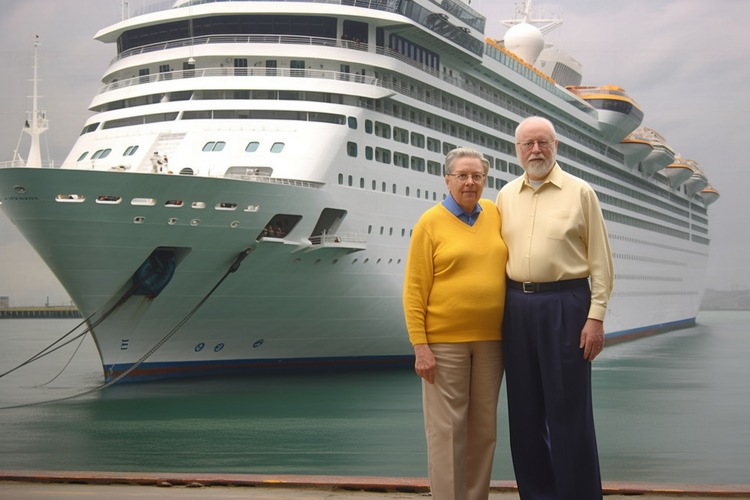Understanding Cremation Services and Associated Costs
Cremation has become an increasingly common end-of-life choice in the United States, offering families a dignified alternative to traditional burial services. This comprehensive guide examines cremation services, their various options, and associated costs to help individuals make informed decisions during difficult times. Understanding these aspects can help families plan effectively while respecting their loved ones' final wishes.

What Does a Simple Cremation Include?
A simple cremation, often called direct cremation, represents the most basic cremation service available. This option typically includes the transportation of the deceased from the place of death to the crematory, temporary storage of the remains, the cremation process itself, and returning the cremated remains to the family in a basic container or urn.
Direct cremation does not include services such as embalming, viewing, or formal funeral ceremonies. The crematory staff handles all necessary documentation, including obtaining death certificates and permits required by local regulations. The simplicity of this option makes it considerably more affordable than traditional burial or full-service cremation packages that include additional ceremonial elements.
How Much Does Cremation Cost Nationwide?
Cremation costs vary significantly across the United States, influenced by regional economic factors, local regulations, and market competition. Nationwide, direct cremation services typically range from $1,000 to $3,000, representing a considerable cost saving compared to traditional burial services that average $7,000 to $12,000 when accounting for caskets, cemetery plots, and associated fees.
Metropolitan areas generally have higher cremation costs than rural regions due to increased operational expenses and property values. States on the coasts, particularly California and New York, typically report higher average costs than midwestern states. Understanding these national trends can help families set realistic budget expectations while researching local providers.
What Factors Influence Local Cremation Pricing?
Several key factors affect cremation pricing in specific locations. The local cost of living significantly impacts service pricing, with higher-cost areas generally commanding premium rates for cremation services. Market competition also plays a crucial role—areas with multiple cremation providers typically offer more competitive pricing than those with limited options.
Regulatory requirements vary by state and sometimes by county, affecting operational costs that providers pass on to consumers. Some jurisdictions require specific permits, waiting periods, or facility standards that increase provider expenses. Additionally, the ownership structure of cremation facilities influences pricing—corporate-owned chains may have different pricing models than family-owned establishments, sometimes offering economies of scale but potentially fewer personalization options.
Comparing Cremation Service Options and Costs
Cremation services extend beyond basic direct cremation to include various levels of ceremony and memorialization. Understanding these options helps families select services that align with their needs and budget.
| Service Type | Typical Inclusions | Average Cost Range |
|---|---|---|
| Direct Cremation | Transportation, cremation process, basic container | $1,000-$3,000 |
| Cremation with Memorial Service | Direct cremation plus facility use for service | $2,000-$4,000 |
| Full-Service Cremation | Viewing, ceremony, embalming, rental casket | $3,500-$6,000 |
| Witness Cremation | Family present for cremation process | Additional $100-$500 |
| Green Cremation | Eco-friendly processes and containers | Additional $200-$800 |
Prices, rates, or cost estimates mentioned in this article are based on the latest available information but may change over time. Independent research is advised before making financial decisions.
Understanding Additional Service Costs
Beyond the base cremation package, families should anticipate potential additional expenses that may significantly impact the total cost. Urns range from basic containers included in direct cremation to artistic or personalized vessels costing $100 to $2,000 or more. Many families choose to purchase keepsake jewelry or memorial items, which typically range from $50 to several hundred dollars depending on materials and craftsmanship.
Death certificates, required for legal and financial matters, generally cost $10-$25 per copy, with most families needing multiple copies. Transportation costs may increase if the death occurs outside a provider’s standard service area. Some families opt for specialized services such as DNA preservation, fingerprint keepsakes, or custom video tributes that add $100-$500 to the total cost.
Many cremation providers offer pre-planning options that allow individuals to arrange and pay for services in advance, often locking in current pricing and relieving family members of making difficult decisions during their time of grief. These plans frequently include payment options that make cremation services more financially accessible.
Planning for Cremation Services
Making informed decisions about cremation requires understanding both the services included and their associated costs. Families benefit from comparing multiple providers, asking detailed questions about included services, and requesting itemized price lists—a right protected under the Federal Trade Commission’s Funeral Rule.
While cost represents an important consideration, families should also evaluate providers based on reputation, facility conditions, and staff compassion. Online reviews, recommendations from trusted sources, and in-person facility tours can provide valuable insights beyond price comparisons. By balancing financial considerations with personal preferences and emotional needs, families can select cremation services that appropriately honor their loved ones while respecting practical constraints.




